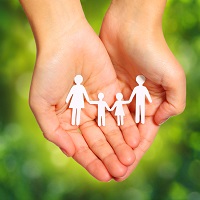It has been a tough year for many and the news is often filled with stories of pain and suffering.
I’ve written this page to help the community with “how” they can go about helping others after trauma. Traumatic events witnessed on TV can sometimes be influential in triggering fears and anxiety around past experiences, so this means that potentially we can all be affected by what we see and hear in the media.
What can I do to Help?
After a traumatic event is important to know that support from family and friends is a key factor in recovery. Practical support may be critical if your loved one is injured or scared. Staying with them and helping them to accept what has happened. Sometimes those affected will want to be alone but need someone around, other times they will need a shoulder to cry on. Eating, sleeping and other such basic needs can often be neglected after a trauma. There are so many ways to help practically and emotionally.
Going to therapy and talking about the event immediately isn’t helpful in most cases, in fact talking about the event too soon (ie. debriefing) can sometimes cause the person to deteriorate (Gist & Devilly, 2002). Take time to do things that might be enjoyable. If the person needs to go for a walk, or watch a movie or “do” something then this can be helpful if you can just be with them. When they are ready they will talk about the event.
What about Children?
 Just be aware that your children may see things on TV that they do not understand. Young children cannot tell the difference between ads and real life on TV. Be available for children to ask you questions and censor inappropriate TV coverage depending on the age and maturity of your child. An anxious child will not benefit from watching repeated media coverage on a traumatic event. Be mindful about what your children know and understand and being supportive of them learning. It is very important to not create terror or fear about others, as children are often unable socially categorise like an adult and may unknowingly become fearful and anxious about going out to the shops, etc. Try to give children information about society in the amount that they can digest and give them time to ask you questions. Children take time to understand what you have explained and will often raise the issue later with more questions.
Just be aware that your children may see things on TV that they do not understand. Young children cannot tell the difference between ads and real life on TV. Be available for children to ask you questions and censor inappropriate TV coverage depending on the age and maturity of your child. An anxious child will not benefit from watching repeated media coverage on a traumatic event. Be mindful about what your children know and understand and being supportive of them learning. It is very important to not create terror or fear about others, as children are often unable socially categorise like an adult and may unknowingly become fearful and anxious about going out to the shops, etc. Try to give children information about society in the amount that they can digest and give them time to ask you questions. Children take time to understand what you have explained and will often raise the issue later with more questions.
When is Professional Help Needed?
Professional help is needed when symptoms associated with the trauma are excessive or present after a few weeks. If a person has not slept for days, then you shouldn’t wait and seeing the GP is a good first step. After a few weeks, the emotions from the event should settle, sleeping and eating should return to normal, overwhelming emotions should stop occurring. Persistent or recurrent nightmares associated with the event are also common when someone is not recovering. Many people recover well without professional help and with the support of family and friends. For those that have symptoms that interrupt their lives then counselling is the most important form of treatment.
The treatment guidelines for Post Traumatic Stress Disorder can be found at ACPMH.
Author: Vivian Jarrett, B Psych (Hons), MAPS, MAICD.
To make an appointment try Online Booking. Alternatively, you can call M1 Psychology Brisbane on (07) 3067 9129
References:
- Gist, R., & Devilly, G.J. (2002). Post-trauma debriefing: The road too frequently travelled. The Lancet, 360, 741-742.
- http://guidelines.acpmh.unimelb.edu.au/__data/assets/pdf_file/0009/851526/Helping_others.pdf
- http://www.acpmh.unimelb.edu.au/resources/resources-guidelines.html